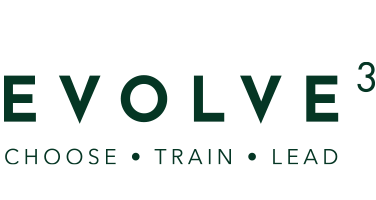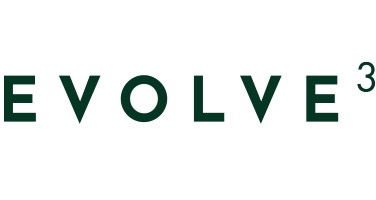
16 Dec Audio recordings in the workplace – things to keep in mind
We often get asked by clients whether they can record interviews, counselling sessions and other workplace interactions. This blog post from Andrew Lord of Lord Law outlines considerations to keep in mind if you decide to record a workplace investigation interview.
Complaints of inappropriate behaviour or conduct in the workplace, including bullying or harassment, may require a workplace investigation. Part of a workplace investigation will include interviewing the person making the claim, the person against whom the claim is made and any witnesses to the incident.
A question that often arises is whether you can record an employee in a workplace investigation interview. Although taking handwritten notes was often the approach taken increased technological capability, accessibility and cost efficiency makes audio-recordings a highly attractive option.
This article will consider some of the benefits of audio-recording a workplace investigation interview, as well as some recommendations if you intend to do this.
The Advantages of Audio Recording
- Accurate record of what is said:
Whilst written notes may only capture the main points that have been said in an interview, having an audio recording provides all interviewees with an accurate record of what they have said. Also, recordings reduce the likelihood of disputes arising about admissions or statements that were made during an investigation.
- Participants are aware of the seriousness of what is said:
When an interview is recorded, it may be effective in setting the tone for interviews. Interviewees may also be more aware of the seriousness of what they say, and therefore understand that all statements that they make either during the recording will form part of the investigation.
- Allows the interviewer to be more focused on the interview:
In an interview that is not recorded, the investigator may be more concerned about frantically trying to write notes and keep track of what is being said. In this way, they may not be able to be present in the moment, and consider other aspects like body language, which are equally important for credibility assessments. Recording an interview may allow for pauses caused by taking notes to be minimised, and for the interview to take on a more conversational tone. This may also allow the interviewer to build rapport and trust with the interviewee, which is also an integral aspect of a good interview.
- Clarifying points and afterthoughts:
Although recorded interviews may result in longer transcripts than written notes, audio recordings may be beneficial in that they can allow an interviewee to clarify what they meant in subsequent interviews. Additionally, subsequent recordings may result in issues that were previously not regarded as important to come to the forefront. The trade-off here is not having an ordered or contemporaneous transcript, but the benefit of gaining a more detailed and nuanced understanding is arguably greater.
Although there are many benefits to recording a workplace investigation interview, the decision as to whether to record should be made after considering the facts and circumstances of the case. This includes taking into account the number of witnesses/potential interviewees, the complexity of the case, any workplace policies and whether the investigation may result in litigation.
As was held in Clarke v Toll Transport Pty Ltd [2019] FWC 606 https://www.fwc.gov.au/documents/decisionssigned/html/2019fwc606.htm, audio-recordings or transcripts may form part of the evidence in legal proceedings.
Top 3 Tips for Recording Interviews
1. Obtain consent, be prepared and have a plan B
If an interviewer intends to use audio-recording prior written consent must be obtained from the persons being interviewed. Keep in mind that some interviewees may not consent to be recorded, and in this case, having an alternative plan is crucial (this may mean having a device that allows you to quickly take notes). If the interview is being conducted over the telephone, or on a platform like Zoom, ensure you gain permission to record this as well.
To prevent any hiccups or delays it is also crucial that you test the software and device that you are going to be recording the interview on. Ensure that your device is fully charged, and where possible, set to flight mode to prevent disruptions from phone calls or other notifications. if you do experience technological issues, ensure you have a backup plan (another device, or even pen and paper)!
2. Be clear on the rights of participants, and what information participants will be provided with
The most effective workplace investigations ensure that all participants are treated equally, this may involve considering geographical constraints or disabilities, amongst other considerations.
To ensure that the interviewing procedure is deemed fair, it is standard practice to provide interviewees with the transcripts of their own interviews. This is particularly important for complainants and respondents in a workplace investigation, to consider and review their responses, and add anything further to their statements. All employees involved should be notified of their rights at the start of the investigation.
3. Be vigilant
As mentioned, a benefit of audio recordings is that investigators can fully focus on the interview, rather than trying to write everything that is being said. Nevertheless, investigators should ensure that they are observant, and consider how interviewees present their statements, including any inconsistencies that arise from differing accounts. Where there are conflicting accounts, credibility assessments will be crucial. This involves considering both what is said, in addition to how evidence is presented. Given that audio recordings may not capture these immediate observations that an investigator picks up, it may be necessary to take notes on these matters which can be considered in conjunction with recordings.
Conclusion
Audio recordings provide a full, accurate account of what was said in an interview and may be more effective to rely on as evidence.
If you are going to record an interview, ensure you comply with privacy requirements and afford procedural fairness to all participants.



